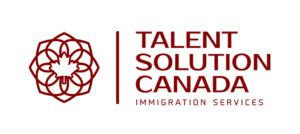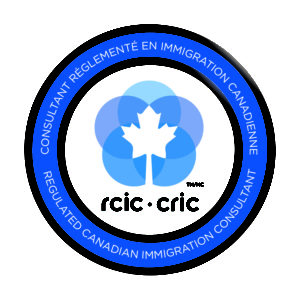“Can you help me find a job in Canada?”, is a popular question I receive on a daily basis.
While I cannot help everyone get hired, I’ve collected several great tips from clients and friends who’ve been successful in finding jobs in Canada. In order to help you reach your goal of finding work, here are 6 proven tips on how to improve your job-hunting skills and get on track to your new life in Canada.
The Challenge
Canada welcomes more than 300,000 newcomers on work permits of all skill levels each year. Work is also a gateway to permanent residence with more than 350,000 PR visas issued each year, often based on work experience while in Canada.
However, in my experience, most Canadian employers still prefer to hire Canadian citizens or permanent residents, mainly to avoid the cost and complexities of immigration. For these reasons, many immigration hopefuls quickly realize that getting a job in Canada can be very challenging and competitive without first having their PR status.
Other challenges that hopefuls face include: identifying jobs that hire foreign workers, finding the best places to live in Canada, and how to prepare and submit an application.
Let's examine how you can overcome these challenges and improve your chances of being selected by a Canadian employer.
1. Target small communities
Improve your chances by applying for jobs in smaller communities. Smaller towns attract fewer applicants, which means less competition from other immigration hopefuls. Communities that have a greater economic or demographic need for immigration will often have special attraction programs that offer lower barriers for English skills, education, or work experience.
Here is a list of such pilot programs and instructions on how to qualify and apply for each.
a. Yukon Community Pilot
This is a new program launched in 2020 to support the territory of Yukon in northern Canada. An applicant can receive an open work permit without needing an LMIA or IELTS. Applicants can also receive PR in 2 years. Follow this link to learn more about the program and apply directly for jobs in the Yukon Community Pilot.
b. RNIP – Rural and Northern Immigration Pilot
The Rural and Northern Immigration Pilot is a community-driven program to spread the benefits of economic immigration to smaller communities throughout Canada. So far, 12 communities in Canada qualify for RNIP, and they are actively hiring skilled and semi-skilled workers. This program also offers quick PR processing. Click here to find out which towns qualify and how to apply for jobs within the Rural and Northern Immigration Pilot.
c. AIPP – Atlantic Canada Immigration Pilot
The Atlantic Immigration Pilot offers the opportunity to work and settle permanently in one of the 4 Atlantic provinces: New Brunswick, Prince Edward Island, Nova Scotia, or Newfoundland. PR is available within 6 months for candidates who meet the program requirements. Click here to find the list of designated employers and jobs available within the Atlantic Canada Immigration Pilot.
2. Canadian style resume
Canadian HR professionals will quickly reject a resume if it doesn’t “look right”. While your resume’s layout and content may be typical in your culture, Canadian discrimination and privacy laws limit what an applicant should include. Including too much personal information is likely to get your resume rejected.
Most Canadian employers also use software to analyze and collect resumes. Which means, a concise resume in an easy to read format has a higher chance of success.
In order to make your resume more appealing to Canadian HR, we recommend doing the following:
- use the same readable professional font and size consistently throughout,
- avoid using colors, italics, shading, background images, or graphics,
- don’t include your photo,
- don’t share information regarding your marital status, age, religion,
- highlight your accomplishments by using numbers and specific achievements completed,
- use action verbs when describing your accomplishments (led, achieved, developed…),
- list your experience in reverse chronological order (newest one on top),
- keep your resume under 2 pages,
- include a Canadian contact or phone number if possible,
- and most importantly, make sure there are no spelling or grammar mistakes!
As a bonus, here is a great video on creating a Canadian style resume which I recommend.
3. Get a Canadian recruitment agent
Canadian agents have specialized knowledge in a region, or in the type of occupation, they recruit for. Many are happy and willing to help newcomers find work in Canada. There are several authorized headhunting agencies throughout Canada to choose from.
Find the one that is the best fit for you and reach out today.
Here is a list of all headhunting agencies in Canada: https://headhunters-canada.com/
4. Get the right work experience
Knowing which skills are in-demand and growing your professional experience will increase your chances of getting a job in Canada.
According to Randstad, the following job types are the most in demand in Canada in 2020:
- sales associates,
- business development managers,
- software developers,
- mechanics,
- electrical engineers,
- drivers,
- general laborers,
- financial advisors,
- HR managers,
- welders,
- nurses,
- and accountants.
Each province also promotes skills-in-need through its provincial nomination programs. For example, in 2019 the Ontario Nominee Program targeted the following work experience groups:
- administrative services managers,
- corporate sales managers,
- business management consultants,
- advertising, marketing, retail managers,
- financial auditors and accountants,
- and registered nurses.
As mentioned previously, smaller communities are often looking for an even wider variety of skills and have a greater economic motivation to hire foreign workers of all types. That is why AIPP, RNIP, and the Yukon economic program support a broader range of occupations and make it easier to qualify. With less in-demand skills, you may want to target smaller communities.
5. Canada’s hidden job market
Networking is a proven way to find a job in Canada. Here are some of the ways you can access jobs that may not be posted online.
a. Linkedin
Network through linkedin, which is a widely used platform in Canada. Create a good profile and make sure that it is up-to-date. Network with people from your professional field in the regions you want to immigrate to. Connect with employers you find interesting.
b. Attend Canadian job fairs
Check with the Canadian consulate in your country. They frequently host online and in-person job fairs to promote Canadian job opportunities. Follow their events through their Facebook page using the link above.
c. Come to Canada on a tourist visa
Attend job fairs in person, in Canada. Meeting employers face-to-face can be a huge help in making an impression. Click here to search for some job fairs hosted in Canada. Contact Talent Solution Canada for assistance on applying for a temporary resident visa.
6. Apply online
Here are some of the more effective and popular job websites in Canada. Keep in mind, not all employers are willing to hire foreign workers on these websites, however it is still worth a try.
Search for jobs that match your background in the region you would most like to live. Apply, apply, apply.
- Indeed Canada https://ca.indeed.com/
- Workopolis https://www.workopolis.com/en/
- Job Bank https://www.jobbank.gc.ca/jobsearch/advancedsearch
- Monster Canada https://www.jobboardfinder.com/jobboard-monster-canada
- Glassdoor https://www.glassdoor.ca/
Work and Live in Canada
Knowing where to apply, how to apply, and what skills are the most-in-demand, is the foundation of finding work in Canada. Following these proven tips should greatly improve your chances of being noticed and landing a job in Canada.
Talent Solution Canada also supports more than 60 types of Canadian immigration programs, including study and investment options. If you have any questions regarding jobs, programs, or any other number of immigration matters, please feel free to reach out and book a consultation.
Looking forward to discussing your pathway to Canada!
--
Denis J. Desjardins, MBA, GPHR, RCIC
Regulated Canadian Immigration Consultant #R533327
Owner & Director
Talent Solution Canada - Immigration Services
Canada 1.506.300.3931
Toll-Free 1.833.300.3931
Vietnam +84(0).90.310.3931
[email protected]
www.talentsolutioncanada.com



